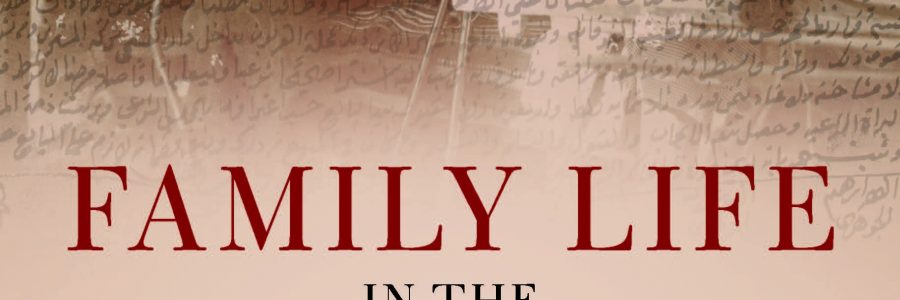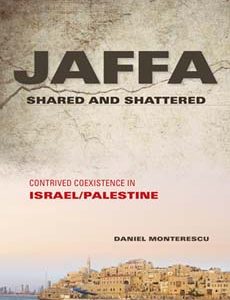-
Add to cartQuick view
Ice Cream in the Car
Free!A short story by the Palestinian author Tamara Naser. She studied English literature, film, and psychology, has an MA, and is a certified bibliotherapist, providing therapy through stories and writing, at Haifa University.
Add to cartQuick view -
Add to cartQuick view
The Gate to the Body
Free!A short story by Sheikha Hlewa, who was born in 1968 in an unrecognized Bedouin village near Haifa. An author, poet, and educator, today she lives in Jaffa. She has an MA in Arabic and Islam from Tel Aviv University and is an instructor and curriculum developer. Her short stories have been translated into many languages and published in journals and websites in the Arab world and Israel. She has published four books (in Arabic): Outside of the Seasons I Learned How to Fly, poetry (Jordan, 2015); Ladies of Darkness, short stories (Jordan, 2015); The Windows Are Broken Books, short stories (Jordan, 2016); Invitation No. C345, short stories (Italy, 2018).
Add to cartQuick view -
 Add to cartQuick view
Add to cartQuick viewArabic Language among Jews in Israel and the New Mizrahi Zionism: Between Active Knowledge and Performance
Free!According to Command of Arabic among Israeli Jews, a report by Shenhav et al. (2015), the vast majority of the Jews in Israel neither speak nor understand the Arabic language. Proficiency in Arabic has declined dramatically with succeeding generations. While slightly more than half of the participants in the study believe that knowledge of Arabic is important, the majority of the participants also stated that its importance is security related. This bleak picture of Arabic as a vanishing language among Israeli Jews is related to the protracted ethnonational conflict, which has divided “Jews” from “Arabs.” This is in contrast to the recently expanding number of Jewish Israeli musicians, mostly of the third generation (the grandchildren) of migrants from Arab countries, who sing in Arabic and receive wide local and international exposure. In this article I examine the discrepancy between the low rates of proficiency and interest in the Arabic language and the growing number of singers and audiences in Israel who appreciate music sung in Arabic. I first summarize the findings of the report. I then examine Jewish Israeli musicians who perform in Arabic, focusing on Neta Elkayam and Ziv Yehezkel, to consider the possibilities of a cultural dialogue between Israeli musicians and local Palestinian, as well as regional, Arab audiences. I discuss the political significance of these performances, both in the context of Mizrahi identity among the third generation and in relation to local and regional Arab audiences. In the last section, I tie these musical performances to the policy of the right-wing government in Israel and the rise of a new Mizrahi Zionist discourse in relation to the Arabic language and culture. Finally, I point to the possible negative consequences of this cultural shift for Palestinians.
Add to cartQuick view -
Add to cartQuick view
Babel by Cemil Meriç (Translation)
“Babel,” the first chapter of Cemil Meriç’s Bu Ülke, is translated here to English for the first time. Meriç, a Turkish intellectual, inspired many scholars and leaders in post-Kemalist Turkey. “Babel” is a critical discussion of Kemalist intellectuals’ cultural and political outlook and the cultural reforms they instated. Meriç refuses to accept the divisions between East and West, religious and secular, and Right and Left which he sees as straitjackets imported from Christian Europe that prevent freedom of thought. At the same time, his writing integrates a philosophy inspired by the West with one that originates in the East and creates a symbiosis between them. He challenges the premises of the Turkish modernization project and the attempt to create a new generation, new state, new language and new culture. Writing in a subversive language, Meriç contends that a reformist project disconnected from its past is doomed to a lack of substance and failure.
$5.00Free!Add to cartQuick view -
Add to cartQuick view
Beshara B. Doumani. Family Life in the Ottoman Mediterranean: A Social History. Cambridge: Cambridge University Press, 2017. 370 pp.
Free!Add to cartQuick view -
Add to cartQuick view
Breaking Boundaries, Bricking Walls: Oriental, Sephardi, and European Jews in a Late Ottoman Palestinian Classroom
Free!This article explores the relations between European Zionists, Sephardim, and Oriental Jews in late Ottoman Palestine by narrating the story of A. Yehudai, a Bulgarian Jewish teacher in the Sephardi community of Gaza in 1913. Reading through Yehudai’s ambitions, deliberations, and frustrations, the article makes two main arguments: First, it challenges the inclusivity often attributed in scholarly literature to the category of “Sephardi,” suggesting that as a practical category used by historical figures, especially in the context of national discourses, it was regarded as much more bounded and rigid. Second, the article points to the period before European Zionist domination over Middle Eastern Jews. Through the case of late Ottoman Gaza, the article shows that Jewish communities in Palestine were essential for institutional Zionist bodies, were aware of their situation, and even used this power structure for their own gain. Taken together, both arguments testify to the fact that communal demarcations are essential for human society in the sense that the crossing of boundaries always entails the delineation of new ones.
Add to cartQuick view -
Add to cartQuick view
Daniel Monterescu. Jaffa Shared and Shattered: Contrived Coexistence in Israel/Palestine. Bloomington: Indiana University Press, 2015. 384 pp.
Free!Add to cartQuick view -
Add to cartQuick view
Dreams and Nightmares: Reading Akram Aylisli’s Stone Dreams on the 100th Anniversary of the Armenian Genocide
Free!This article analyzes Stone Dreams, a novel by famous Azeri writer Akram Aylisli. Published in the Russian literary journal Druzhba narodov (Fraternity of peoples) in December 2012, it condemned anti-Armenian pogroms that took place in the cities of Baku and Sumgait at the end of the 1980s. The book also addressed the massacre committed by Turkish troops during the genocide of the Armenian people (1915–1923), including the mass execution of the Armenian population in Aylisli’s native town of Aylis/Agulis. On Christmas day of 1919, under orders by Turkish commander Adif Bey, almost all of the village’s Armenians were killed, with the exception of a few young girls, whom Aylisli knew when he was a young man. By the late 1980s they were gray-haired women, and the narrative of Aylisli’s novel was based on the stories told by these older people in the village. The publication of Aylisli’s novel caused mass outrage in Azerbaijan because of its alleged one-sidedness. The outrage took the form of mass demonstrations in front of Aylisli’s house, as well as the public burning of his books and accusations of treason.
Add to cartQuick view -
Add to cartQuick view
Elizabeth F. Thompson. Justice Interrupted: The Struggle for Constitutional Government in the Middle East. Cambridge, MA: Harvard University Press, 2013. 432 pp.
Elizabeth F. Thompson. Justice Interrupted: The Struggle for Constitutional Government in the Middle East. Cambridge, MA: Harvard University Press, 2013. 432 pp.
$5.00Free!Add to cartQuick view
- Home
- About JLS
- Issues
- Vol. 9 No. 1 | Summer 2019
- Vol 8 No 2 Winter 2018
- Vol. 8, No. 1: Summer 2018
- Vol. 7, No. 2: Winter 2017
- Vol. 7, 1: Summer 2017
- Vol. 6, Summer/Winter 2016
- Vol. 5, No. 2 Winter 2015
- Vol. 5, No. 1 Summer 2015
- Vol. 4, No. 2 Winter 2014
- Vol. 4, No. 1 Summer 2014
- Vol. 3, No. 2 Winter 2013
- Vol. 3, No. 1 Summer 2013
- Vol. 2, No. 2 Winter 2012
- Vol. 2, No. 1 Summer 2012
- Vol. 1, No. 2 Winter 2011
- Vol. 1, No. 1 Summer 2011
- Blog
- dock-uments
- Subscribe
- Submit
- Contact





